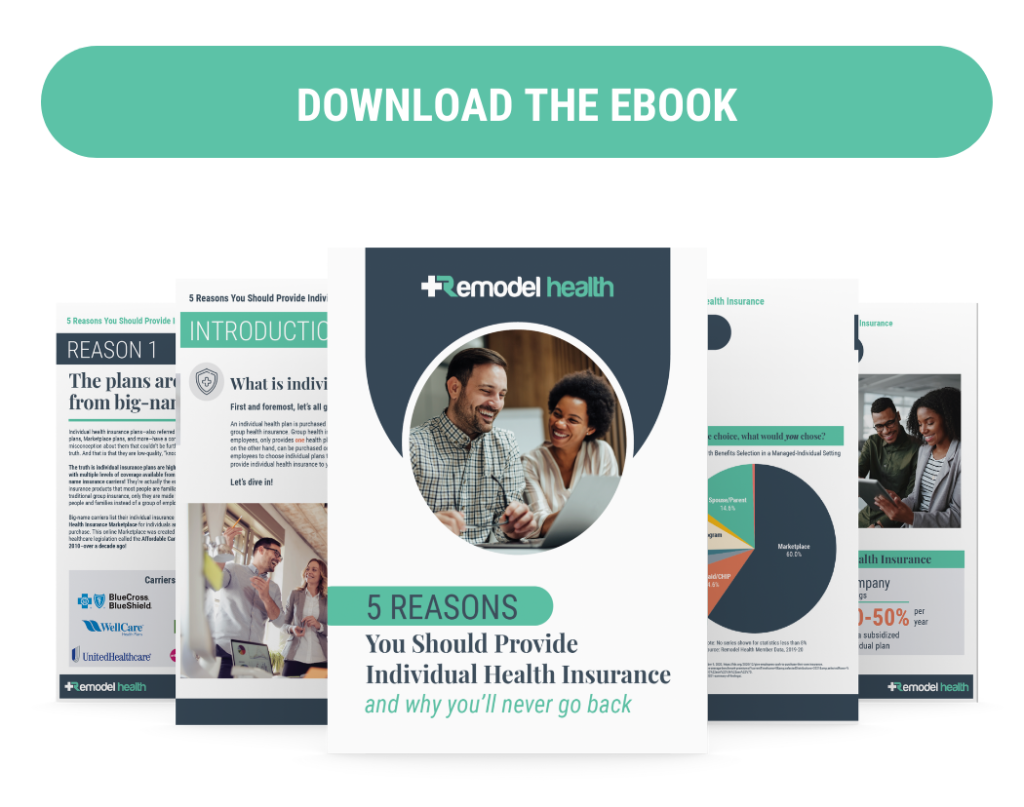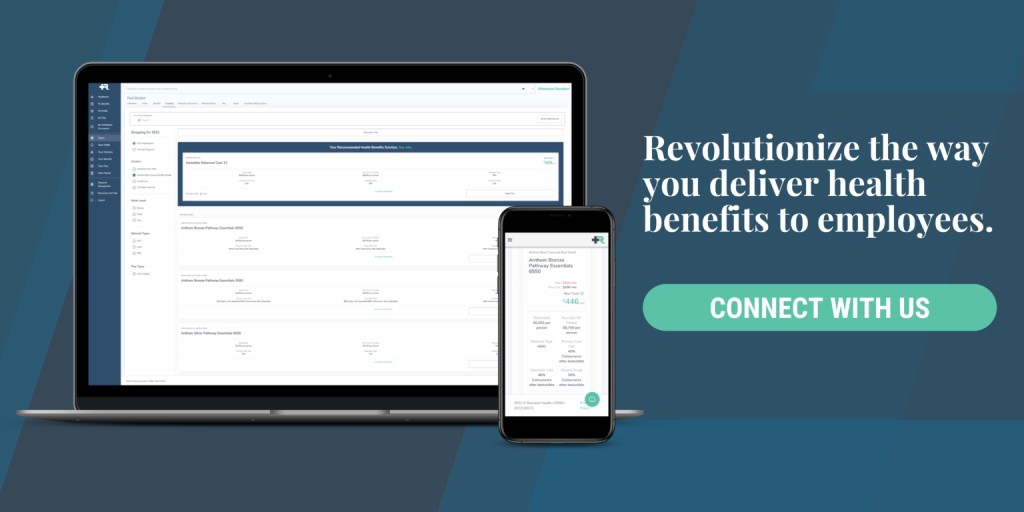Picking the right health coverage is hard. But using it well can be just as difficult! We’ve compiled some of our favorite hacks to make sure that for all those dollars you put into your healthcare, you get the most out of it!
7. Telemedicine
Today 96% of all large employers have started providing telemedicine subscriptions to their people. And what most people don’t realize is that their insurance plan, and even certain sharing ministries, already include access. Telemedicine is an app-based user experience that connects you directly to a doctor 24/7, often at a $0 copay, for non-emergency issues such as rashes, mild fevers, etc. The doctor can even send any needed prescriptions to your local pharmacy. For example, when your child has an earache, the last thing anyone needs is to haul the family to the pediatrician to get the antibiotic you know you need. Telemedicine solutions can help you get the care you need faster and cheaper.
6. HSAs are better than Copays
Most of us have sat in a boring HR meeting where someone “excitedly” explains our health insurance. At the end of the day, all most people care about is how much we have to pay and if we lose our doctor. Am I resonating with you yet? We’re faced with endless paper folders and spreadsheet tables that feel like you need a degree to even read properly. We sign on the dotted line, picking a plan that appears good because $30 to go to the doctor seems like a great deal, right?
In fact, choosing a $30 Copay plan instead of an HSA plan is usually not a better deal. With Copay plans, you’re often paying more every month, instead of saving more in a Health Savings Account. You only spend money when you need it and save it when you don’t!
5. You won’t lose your doctor
I’ve sat in the room when my insurance changed and with it my network. My friend quickly pulled up his phone as soon as he found out and searched if his children’s doctor was in-network — it was not. He was devastated and immediately texted his wife to come up with a game plan for changing doctors. Little did he know though, almost every time you are a current patient of any doctor, they’ll keep seeing you with something called “self-pay”.
Self-pay means you simply tell the doctor to invoice you directly and you agree to pay the bill. It’s worth calculating how many times you actually go to the doctor every year, and compare that against your wasted monthly premiums. If you’re using an HSA plan, you can even use those dollars to pay for your out-of-network, self-pay visits.

4. Negotiate all of your bills
My wife recently visited one of her old family doctors who is technically not in-network for us. On the phone, they asked about her insurance and she explained she was going to self-pay. Do you know what they did? Right then, they lowered the cost of her visit. Why? Because they would rather handle negotiating on the front-end since they know you’ll probably ask for it on the back-end.
Negotiating can also work well for hospital bills. Once you get an invoice, even after it has gone through insurance, you are still able to negotiate that bill down further. However, you would need to plan on settling the negotiation in cash. Most hospitals and doctors won’t be willing to lower the bill and put you on a payment plan. If you can manage it, you can often save around 40% simply by offering to pay the lowered balance in-full instead of using a payment plan.
3. Shop around for every procedure
The worst things to purchase at the grocery store are those “impulse buys” they put up by the register. Their margins are insane on those products, but we’re suckered into them because we really did “need” that extra phone charger. Little did we know, we could have gotten it on Amazon for a third of the price!
Similar to this scenario, we must apply good consumer practices to choosing locations for our procedures as well. For example, it has been cited that with something like a colonoscopy, the price can vary by $4,000 depending on what facility you choose to go to. Same procedure, just a different place, even with “in-network” pricing. There is a strong national trend around price transparency right now, so take advantage of it and shop just as wisely for medical care like you would for anything else!
2. Generic is usually cheaper than insurance
I went to pick up my prescription from the pharmacy that I used for quite a while. I had been using my insurance every time because that’s what you do; when you have insurance, you use it. Right? Little did I know, my $15 copay was actually charging me more. The non-insurance base cost was actually $4. Yes, just $4! I had been overpaying for months. There have been new policies and laws put in place that are starting to make this occur less, but it is not the only way you may be overpaying.
There is often a stigma behind “generic” vs. “name brand” when it comes to American consumerism. Every online video ad is reminding us how much better they are than everyone else. That’s not true with medicine. All “generic” means is that the initial patent has expired for the inventor of the drug itself. The government has regulations on how long any one company can keep a monopoly on an RX product, so once that patent expires, generic versions using the identical drug are allowed to be sold for a fraction of the cost. Why do name-brand drug companies still sell theirs? Brand loyalty. This is true of products like ibuprofen and acetaminophen as well. Generic is the same thing, so don’t overpay!
1. Actually use your insurance!
When the Affordable Care Act was signed into law, with it came the requirement for any insurance plan to include many preventive medical services at no charge to the individual. (This is one of those reasons that costs went up so much) Basically, you have free care you’re not using. These services can include medical health, disease and cancer screening, and even aspirin use. Data shows that only about 8% of people actually use these preventative services.
The purpose of these preventive services is to do just what the name says: prevent! Insurance companies know when you go to the doctor regularly, there is a greater likelihood of catching issues sooner, often making treatment cheaper. So schedule your check-up and take advantage of all the screenings you can. After all, it’s free!
Hack your Healthcare
Health insurance can often seem like the most complicated aspect of our lives, but not following the “prescribed” method when it comes to your healthcare by making sure you aren’t overpaying and fully using your benefits will truly change your life! Whether you’re on a copay plan or HSA plan, are a part of a Christian sharing ministry, an ACA plan or even a group plan, we hope you take advantage of some of these healthcare hacks to not only simplify your health insurance experience but also make it more affordable!

